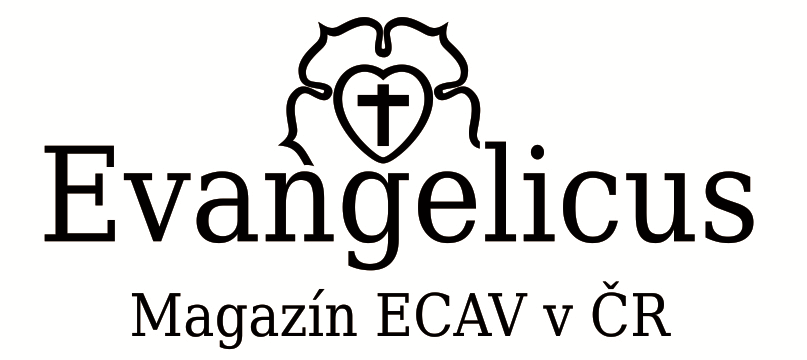Dear brothers and sisters, do you like to present yourselves in the best possible light, do you like to show off from time to time and do you like to be applauded and complimented? I guess we all like that from someone whom we admire and from whom we would like to receive an invitation to a party. After all, this is what the entertainment business works with and what politics is about. And we all like to receive compliments and appreciation for how “good” we are. After all, our preferential loving has something to do with this. My loving mother, probably as every loving […]
Brothers and sisters, if you happen to live on this continent of Europe, our ancestors were bold enough or did not take offence to depict this repulsive picture of the death of John the Baptist. Take a trip and see a painting or a fresco of a cut off bloody head of John the Baptist on a platter in a castle or in a chateau or in a church here in Bohemia or Moravia. Our ancestors were not snowflakes, they used and looked at art that shows such historical things and were not offended by art that holds human sinfulness and brutality in front of their eyes. Moreover, and this is more important, our ancestors endured the […]
V úterý 3. srpna 2021 se v Tuchoměřicích u Prahy uskutečnilo setkání bratra Matthew C. Harrisona, presidenta Luterské církve Missourské synody, a bratra Mariána Čopa, biskupa ECAV v ČR. Schůzku v Praze připravil bratr farář James A. Krikava, regionální ředitel LCMS pro oblast Euroasie. Na oficiální pracovní schůzce se hovořilo o vztazích, teologiích a tradicích obou církví. V neoficiální části následovala přátelská večeře a společný zpěv a hudba.
Setkání nejvyšších představitelů ECAV v ČR a LCMS (-md-)[...]
Dear brothers and sisters, apostle Paul could have been rather small figured and his speech not skillful, but these words written by him to the church in Rome are the sharp sword of the Word of God. On one hand, Paul sharply and decisively reminds us of our sin and does not water down the devastating consequences of living in sin. On the other hand, Paul brings to the Christians in Rome the beautiful, sweet and intimate words of the Gospel that gives comfort, hope and acceptance. As usual with Paul, our text today is only 5 short sentences, […]
Dear brothers and sisters, “Blessed is everyone who will eat bread in the kingdom of God.” What does this exclamation mean? How are we to understand this statement? Blessed, in the light of the Lord´s Sermon on the Mount, refers to “provided for” or “saved”. The one, who is provided for or saved, is in the kingdom of God. Splendid! We expect something like this. But now comes a thing that is a surprise or can be an offense to us, modern people. To eat brad?! First of all, we, modern people who tend to be so “spiritual” and “self-standing” or so […]
Dear brothers and sisters, if you live in the U.S., you could ask your great-great-father: “Do you remember what you were doing when President Lincoln died?” or you could ask your father: “Do you remember what you were doing when President Kennedy got shot?” Or, if you are Czech, you could ask your great-great-father: “How was it when President Masaryk died?” or you can ask any of the adult Czechs now: “Where were you when President Havel died?” By the names, we can know where we are in the historical time. The same in our Old Testament text with […]
Milost vám a pokoj od Boha, našeho Otce, a od Pána Ježíše Krista, který sebe samého vydal za naše hříchy, aby nás podle Boží vůle, vytrhl z tohoto zlého věku. Jemu sláva na věky věků. Amen. Drazí bratři a drahé sestry v Kristu Ježíši, milí Kristovi přátelé! Text Písma svatého, který je základem našeho společného uvažování nalézáme v Janově evangeliu, kapitola 3., verše 1. – 15. Mohli bychom všechno zjednodušit, kdoví po kolikáté slyšet Athanasiovo vyznání víry, znovu zopakovat, že vše je trojiční a skončit. Biblické příběhy jsou ale mnohem barvitější než jednoznačné theologické dogma. Trojičnost je jedinečná jen pro křesťanskou víru. Její ukotvení spadá do 4. až 5. století. Od té […]
Dear brothers and sisters, I started writing this sermon on 20 March, the first Spring Day. What does this time mean for you? One funny but true perception of this Spring/Easter time was shared with me by Pastor Dale Kaster: “When the Spring comes, the Czechs dig up the sidewalks and start having casts.” Funny and true. What does this mean? Why do we behave in this odd way? Having been restrained behind the closed doors for the fear of cold, ice, wind and darkness for half a year, the Spring/Easter days is the time of a release when we gladly leave our homes […]
Drazí přátelé výkladu Bible (exegeze) a čtenáři našeho Evangelica, dnes bych Vám rád představil a společně s Vámi prošel jeden Ježíšův autoritativní výrok, v němž implicitně mluví o sobě samém a významu Velikonoc. Tímto výrokem se ukazuje smysl Kristovy kříže – Ježíšovy spasitelné smrti jako Jeho sebe-oběti za nás všechny. Můžeme zde společně prostřednictvím našeho naslouchání poodkrýt hlubinu paradoxu tzv. radostné výměny: toho, že na sebe Ježíš vzal naše hříchy (zástupná oběť & absolutní láska) a daroval nám namísto nich svou slávu (theosis – „o-božení“). 1. text Jan 12, 24: „Amen, amen, pravím vám – Kdyby pšeničné zrno1, potom co spadlo do země,2 nezemřelo, pak zůstává jen ono samo; ale pokud by […]
Smrt zrna – vzrůst stromu : metafora ukřižování a vzkříšení v Ježíšově výroku u Jana 12, 24[...]
